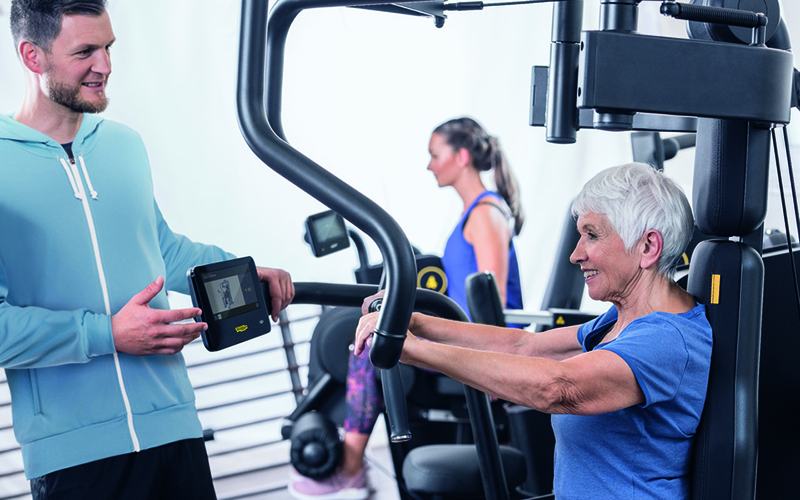
Having surgery can be one of the hardest things a person goes through, both physically and emotionally. Whether it’s a joint replacement, cardiac procedure, or another type of operation, patients need to prepare their body for surgery and recovery afterward. Increasingly, healthcare professionals are turning to lifestyle medicine—with a focus on exercise, nutrition counseling, diabetes management, and physical therapy—to help patients strengthen their health before surgery and regain function after.
Prehabilitation: Building Strength Before Surgery
Traditionally, patients have been advised to rest before surgery. However, a growing body of research shows that the opposite is better. Patients who undergo even routine surgeries can quickly lose muscle and fatigue more easily with short periods of bedrest. Preparing for surgery with prehabilitation, or prehab, often includes healthy lifestyle changes such as structured exercise, nutrition programs, and quitting smoking. Prehab emphasizes muscle strengthening, increasing heart health, and improving metabolic balance, leading to faster recovery and fewer complications after surgery.
Exercise programs created by medical fitness or physical therapy professionals can target muscle groups that will be impacted by the surgery, improve flexibility, and enhance circulation. Even small increases in activity levels—such as walking, light resistance training, or balance exercises—can improve endurance and functional capacity. Patients who enter surgery in stronger condition typically experience less time in the hospital and recover more smoothly afterward.
Diabetes Management and Surgical Outcomes
Diabetes can have an effect on surgical outcomes. High blood sugar levels before and after surgery can slow down wound healing, raise the chance of infection, and make recovery take longer. Lifestyle changes that improve blood sugar control—such as nutrition counseling, weight management, and regular physical activity—can lower these risks.
For people with diabetes, keeping blood sugar in a healthy range before surgery is just as important as the procedure itself. Working with your healthcare team to adjust medications, improve eating habits, and monitor glucose closely can create a safer surgical experience. Research shows that when people with diabetes have good blood sugar control–especially those having heart or joint surgeries–they tend to have fewer problems with surgery and better results over time.
Physical Therapy: Enhancing Surgical Outcomes Through Movement
Before surgery, a physical therapist can check how your body moves to see how ready you are for surgery, and then then recommend strategies to improve your health and fitness before the procedure. Physical therapists can also prepare you for the recovery period, providing education about what to expect and teaching skills that may be necessary following your procedure, such as how to use crutches or a walker safely.
After surgery, physical therapy is one of the most effective tools for regaining mobility, strength, and independence. Early movement, guided by a skilled therapist, can help prevent muscle loss, reduce unwanted scar tissue formation, and improve circulation—all of which help you heal faster.
Therapists create personalized exercise programs that progress as healing occurs, starting with gentle range-of-motion exercises and advancing to strengthening and functional movement. For orthopedic surgeries, this may include gait training, balance work, and exercises targeted and strengthening major muscle groups.
A Comprehensive Approach to Surgical Wellness
The combination of exercise, diabetes management, and physical therapy shows what the principles of lifestyle medicine are all about–empowering patients to take an active role in their health. When used together, these approaches not only help people prepare for and recover from surgery but also improve their overall health in the long run.
Valley Medical Center has integrated lifestyle medicine into its care system, offering coordinated pre- and post-surgical support services that blend medical knowledge with healthy behavior change. Patients who engage in lifestyle medicine before and after surgery often report greater confidence, improved energy, and a sense of ownership over their healing journey.
Ultimately, surgery is not just an isolated event—it’s part of a larger health journey. By investing in exercise, blood sugar control, and rehabilitation, patients can turn surgery into an opportunity to build a stronger foundation for lifelong wellness.
For more information about how Valley can support your surgical journey, visit the Lifestyle Medicine and Outpatient Therapy Services webpages.
Thomas Hammett, DPT, DipACLM, is Director of Operations for Valley’s Lifestyle Medicine clinics.

